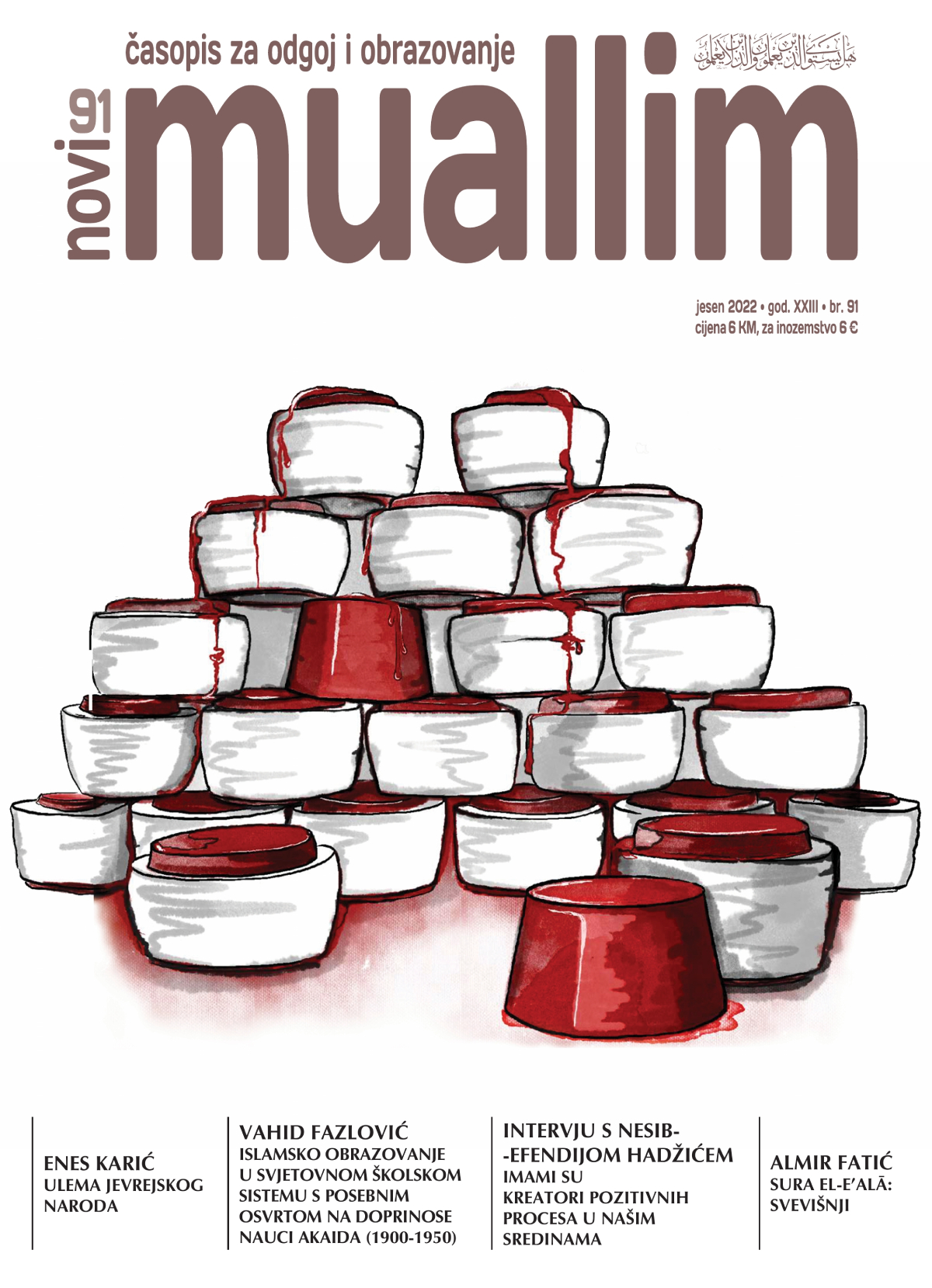THEOLOGY OF RELIGIONS WITHIN THE INTERPRETATIVE TRADITION OF MUSLIMS
DOI:
https://doi.org/10.26340/muallim.v23i91.1957Keywords:
tawhīd, theology of religion, Muslim theology of religion, inter-religious and intertextual dialogue, religious pluralismAbstract
UDK: 28-23-254
Muslims have, from their very first days as geographers, historians, and theologians established correspondence with scholars of other religious backgrounds, thus making themselves familiar with various other and very interesting philosophical ideas, political systems, and finally with different theological perspectives. This will become particularly notable in the classical period of the development of the Islamic civilization. In this article, we shall establish and affirm, with the help of distinctive conceptual instruments, what we designate here as a theology of religion, with a particular accent upon the Muslim theology of religion. In fact, we intend to deal with one of the most challenging disciplines of theology which assumes to determine the self in relation to the other and different in terms of theological and philosophical ideas and doctrines. Theology of religion with Muslims is a distinctive phenomenon in the history of religion in general in regards to the extent of its academic usage and its terminological precision. As this article will present, theology of religion in the most general sense of the term is a fruitful contribution of the Muslim contemplative intellect which in a distinctive manner encountered other differing religious and cultural traditions and entered into specific and particularly objective dialogue with them. Objective, scientifically based studies of significance that deal with the phenomenon of the other and the different in the period between 8th and the 13th centuries are the fruits of the efforts of Muslims of the classical period. Such remarkable works, theological disputes, and studies of apologetic nature represent Avant- grade for all that is written and elaborated in this field later in the East and likewise in the West. Certainly, we do not hold that Muslims were the first, in the historical sense, to show interest in the other and the different, however, they were surely pioneers in systematic, scientific methodology, which is not argued even by contemporary western authors, who interacted, or better say entered an intertextual dialogue with others thus presenting an utterly new approach and an innovative paradigm for the interaction with the other and the different which will later be recognized in the West as theology of religion. And finally, this article is a kind of introduction to Muslim theology of religion in the classical period, which we here, for the first time in our region, aim to present and scientifically evaluate in a contextual and paradigmatic sense.
Downloads
Published
How to Cite
Issue
Section
License

This work is licensed under a Creative Commons Attribution 4.0 International License.
Naknada:
a. Časopis ne naplaćuje naknadu za obradu članaka (APC) i naknadu za podnošenje članaka.
Autori koji objavljuju u ovom časopisu pristaju na sljedeće uvijete:
- Autori zadržavaju autorska prava i pružaju časopisu pravo prvog objavljivanja, pri čemu će rad jednu godinu po objavljivanju biti podložan licenci Creative Commons imenovanje koja omogućuje drugima da dijele rad uz uvijet navođenja autorstva i izvornog objavljivanja u ovom časopisu.
- Autori mogu izraditi zasebne, ugovorne aranžmane za ne-ekskluzivnu distribuciju rada objavljenog u časopisu (npr. postavljanje u institucionalni repozitorij ili objavljivanje u knjizi), uz navođenje da je rad izvorno objavljen u ovom časopisu.


